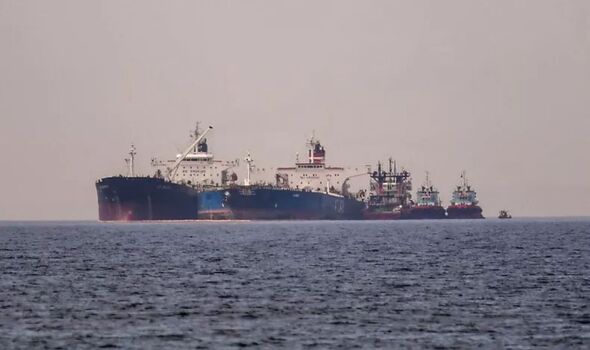Russia could be plunged into further economic chaos as European countries plan to seize Vladimir Putin‘s shadow fleet – used to circumvent existing sanctions.
The vessels transport oil after the vital export has been increasingly targeted since the start of the Ukraine war, such as a price cap banning sales above $60 (£48) a barrel.
However, the Kremlin has managed to circumvent this by changing fleet ownership through shell companies in the Middle East, causing the number of them to rise from 13% to 42% between 2022 and 2023.
Now, European nations are holding discreet talks about seizing the ships in the Baltic Sea and drafting relevant legislation, Politico reports.
The shadow fleet could be apprehended based on international environmental and piracy laws, or countries would need to create new national laws allowing them to seize ships further out at sea, sources said.
Estonia’s Foreign Minister Margus Tsahkna told the outlet: “Close to 50% of sanctioned trade [in Russian seaborne oil] is going through the Gulf of Finland.
“There are the environmental threats; there are the attacks we’ve had against our undersea infrastructure. Now the question is … what can we do with these ships?
“We cannot block all the sea, but we can control more … There are lots of opportunities. We have to coordinate, we have to agree how we implement these conventions.”
The EU has also announced plans to blacklist 74 tankers in the shadow fleet, two of the bloc’s diplomats told the outlet. This is because ships are increasingly travelling through European waters.
The mounting incidents are generating momentum to pursue the tankers sailing with impunity through European waters—and not just with sanctions, which have proven too porous.
Lithuania’s Energy Minister Žygimantas Vaičiūnas added: “We are witnessing the fact that … there are some escape routes.
“That’s why countermeasures to the shadow fleet would be really helping to achieve the results, which we are not capable of achieving through the sanctions regime.”
Isaac Levi from the Centre for Research on Energy and Clean Air said the shadow fleet currently accounts for up to 17% of all oil tankers worldwide and transports “over 80% of all Russian crude oil.”
He added that 348 of the fleet’s ships departed from ports in the Baltic Sea, representing 40% of the country’s total oil sales.
He said: “Without attacking the shadow fleet, [Western allies] enable Russia’s main source of income, [which] generates an incredibly high and rising military spending for the war in Ukraine.”
